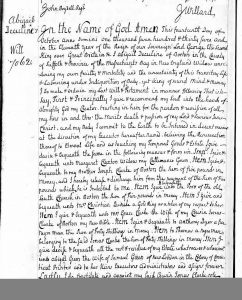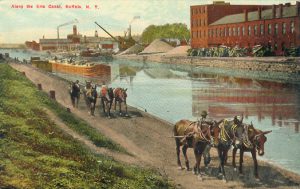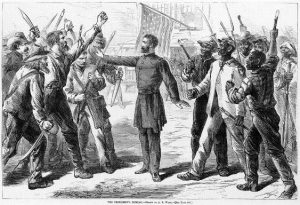
Among the many treasures in the Society’s collection is an extraordinarily well-preserved circa 1847 oil painting by Philip Harry of a grand Boston home that no longer exists: the late eighteenth-century Samuel Parkman House on Bowdoin Square in the West End.
Founded in 1788, Bowdoin Square had, by the early nineteenth century, become one of the most prestigious residential areas of the city and home to many of Boston’s leading families, including the Parkmans. (Samuel Parkman, who built the house around 1789, was a successful merchant who made a fortune in real estate as Boston grew into one of the most important cities in the new republic.) Continue reading The Parkman House







